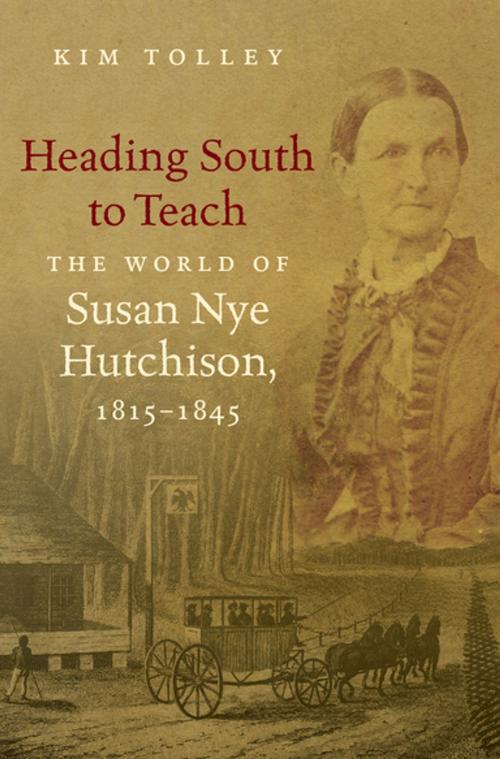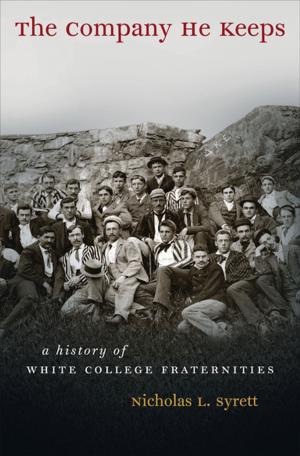Heading South to Teach
The World of Susan Nye Hutchison, 1815-1845
Nonfiction, History, Modern, 19th Century, Social & Cultural Studies, Social Science, Gender Studies, Women&, Americas, United States| Author: | Kim Tolley | ISBN: | 9781469624341 |
| Publisher: | The University of North Carolina Press | Publication: | August 31, 2015 |
| Imprint: | The University of North Carolina Press | Language: | English |
| Author: | Kim Tolley |
| ISBN: | 9781469624341 |
| Publisher: | The University of North Carolina Press |
| Publication: | August 31, 2015 |
| Imprint: | The University of North Carolina Press |
| Language: | English |
Susan Nye Hutchison (1790-1867) was one of many teachers to venture south across the Mason-Dixon Line in the Second Great Awakening. From 1815 to 1841, she kept journals about her career, family life, and encounters with slavery. Drawing on these journals and hundreds of other documents, Kim Tolley uses Hutchison's life to explore the significance of education in transforming American society in the early national period. Tolley examines the roles of ambitious, educated women like Hutchison who became teachers for economic, spiritual, and professional reasons.
During this era, working women faced significant struggles when balancing career ambitions with social conventions about female domesticity. Hutchison's eventual position as head of a respected southern academy was as close to equity as any woman could achieve in any field. By recounting Hutchison's experiences--from praying with slaves and free blacks in the streets of Raleigh and establishing an independent school in Georgia to defying North Carolina law by teaching slaves to read--Tolley offers a rich microhistory of an antebellum teacher. Hutchison's story reveals broad social and cultural shifts and opens an important window onto the world of women's work in southern education.
Susan Nye Hutchison (1790-1867) was one of many teachers to venture south across the Mason-Dixon Line in the Second Great Awakening. From 1815 to 1841, she kept journals about her career, family life, and encounters with slavery. Drawing on these journals and hundreds of other documents, Kim Tolley uses Hutchison's life to explore the significance of education in transforming American society in the early national period. Tolley examines the roles of ambitious, educated women like Hutchison who became teachers for economic, spiritual, and professional reasons.
During this era, working women faced significant struggles when balancing career ambitions with social conventions about female domesticity. Hutchison's eventual position as head of a respected southern academy was as close to equity as any woman could achieve in any field. By recounting Hutchison's experiences--from praying with slaves and free blacks in the streets of Raleigh and establishing an independent school in Georgia to defying North Carolina law by teaching slaves to read--Tolley offers a rich microhistory of an antebellum teacher. Hutchison's story reveals broad social and cultural shifts and opens an important window onto the world of women's work in southern education.















